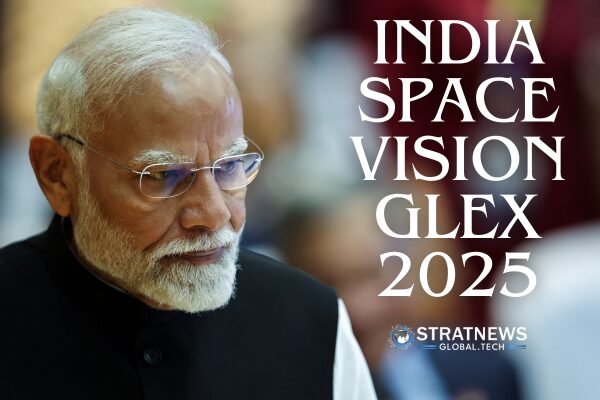PM Modi at GLEX 2025: Space Exploration as a Symbol of Global Progress
Prime Minister Narendra Modi addressed the Global Conference on Space Exploration (GLEX 2025) through a videoconference message, PM Modi highlighted India’s remarkable progress in space technology. Speaking on 7 May as the three-day conference opened in New Delhi, he emphasised the broader meaning of space for India and the world.
PM Modi: India’s Space Journey is a Declaration of Collective Ambition
“Space is not merely a destination but a declaration of curiosity, courage, and collective progress,” said Modi. He added that Indian rockets carry more than just scientific payloads—they carry the dreams of 1.4 billion Indians.
The Prime Minister reflected on India’s rise in the global space community. From launching its first small rocket in 1963 to becoming the first country to land near the Moon’s South Pole, India’s journey has demonstrated innovation and determination.
Gaganyaan and Global Partnerships
Highlighting India’s upcoming human spaceflight programme, Modi said the Gaganyaan mission is a clear symbol of the country’s expanding aspirations. He also announced that an Indian astronaut will soon travel to the International Space Station under a joint ISRO-NASA mission.
Modi shared India’s vision to establish the Bharatiya Antariksha Station by 2035, aiming to support international research. He affirmed that by 2040, India plans to land an astronaut on the Moon, while future missions will target Mars and Venus.
Innovations and Inclusivity in India’s Space Sector
The Prime Minister stressed that India’s space achievements serve not only scientific progress but also societal empowerment. Satellite technology is helping improve governance, railway safety, weather forecasting, and services like the GatiShakti platform.
He acknowledged the growing role of women scientists in leading key missions, calling attention to the inclusive and diverse nature of India’s space sector. Modi also noted the rise of over 250 Indian space startups engaged in satellite systems, propulsion, and imaging technology.
Philosophy and Purpose: ‘Vasudhaiva Kutumbakam’
India’s approach to space is grounded in the ancient philosophy of ‘Vasudhaiva Kutumbakam’—the world is one family. Modi reiterated that India’s mission is not about competition but about shared progress. He recalled the launch of a satellite dedicated to South Asian nations and announced that the G20 Satellite Mission, proposed during India’s G20 Presidency, will further serve the Global South.
A Vision for the Future
Citing past milestones, Modi mentioned India’s successful Mars mission on its first attempt, the discovery of water on the Moon via Chandrayaan-1, high-resolution imaging from Chandrayaan-2, and scientific advances from Chandrayaan-3.
He also highlighted India’s achievements in launching 100 satellites in a single mission and deploying over 400 satellites for 34 countries using Indian launch vehicles.
Modi called for a new era in space exploration, one driven by collaboration, innovation, and the collective dream of a better, more connected world. India, he said, continues to explore the final frontier not just for itself, but for all of humanity.


